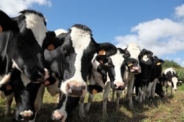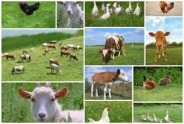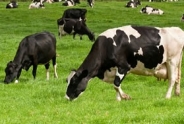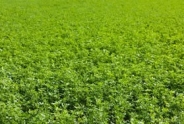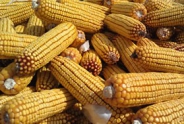Cornell Soil Health Assessment Training Manual
Bill Verbeten, Field Crops
Northwest New York Dairy, Livestock & Field Crops
Briefly, soil is composed of four basic components: mineral solids, water, air and organic matter (including living biota). The mineral solids are stone fragments, sand, silt, and clay. It is the proportion of the latter three that determines the soil's texture. For example, a soil that is composed of 70% silt, 20% sand and 10% clay can be classified as silt loam using the soil texture triangle (Figure 1). Soil texture contributes to the inherent soil quality, the characteristics of the soil that result from soil forming processes These characteristics are difficult to change through soil management.
Cornell Soil Health Assessment Training Manual (pdf; 7099KB)
Upcoming Events
2026 NWNY Dairy Day
February 5, 2026 : NWNY Dairy Day 2026
Perry, NY
Sponsorship and Registration OPEN!
The CCE NWNY Dairy, Livestock and Field Crops team will be holding it's 4th Annual "Dairy Day" on February 5, 2026! We will be bringing the latest in dairy research and hot topics to you with this in-person, 1-day conference.
2026 Soybean & Small Grains Congress
February 11, 2026
Henrietta, NY
Participant Registration for the 2026 Soybean & Small Grains Congress NOW OPEN!
2026 Forage Congress
March 12, 2026
Nunda, NY
Due to the unprecedented winter storm that recently impacted travel conditions across the region and U.S., combined with extreme cold temperatures and associated safety concerns, Forage Congress was postponed out of an abundance of caution. This decision was made with the safety of our participants, speakers, staff, and venue partners as the highest priority.
We are pleased to officially announce that Forage Congress has been rescheduled for Thursday, March 12, 2026, and will be held at The Nunda Ranch as originally planned.
Address: 2278-NY 436, Nunda, New York 14517
Sponsorship opportunities, vendor participation, and event registration are now open. We are excited to reconvene this important educational program and look forward to welcoming producers, industry partners, and speakers for a full day of applied, research-based forage systems programming.

